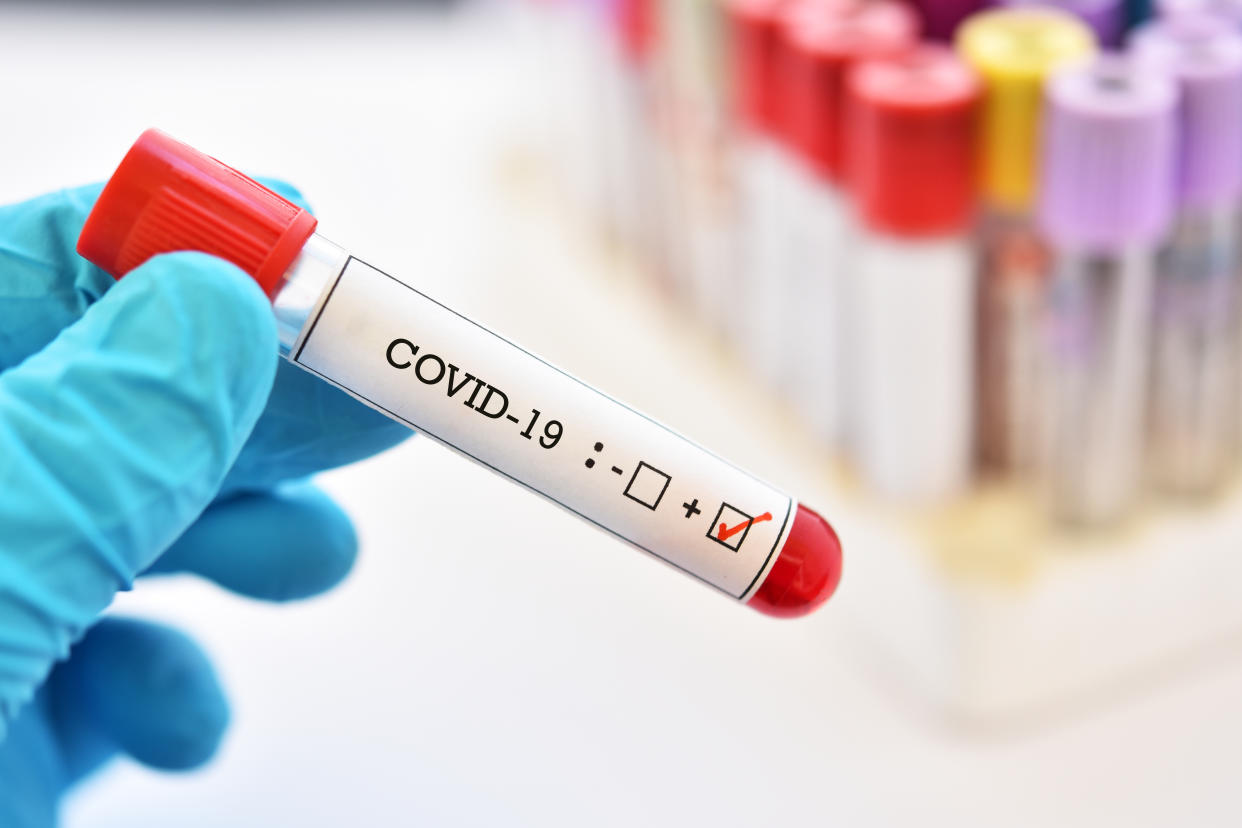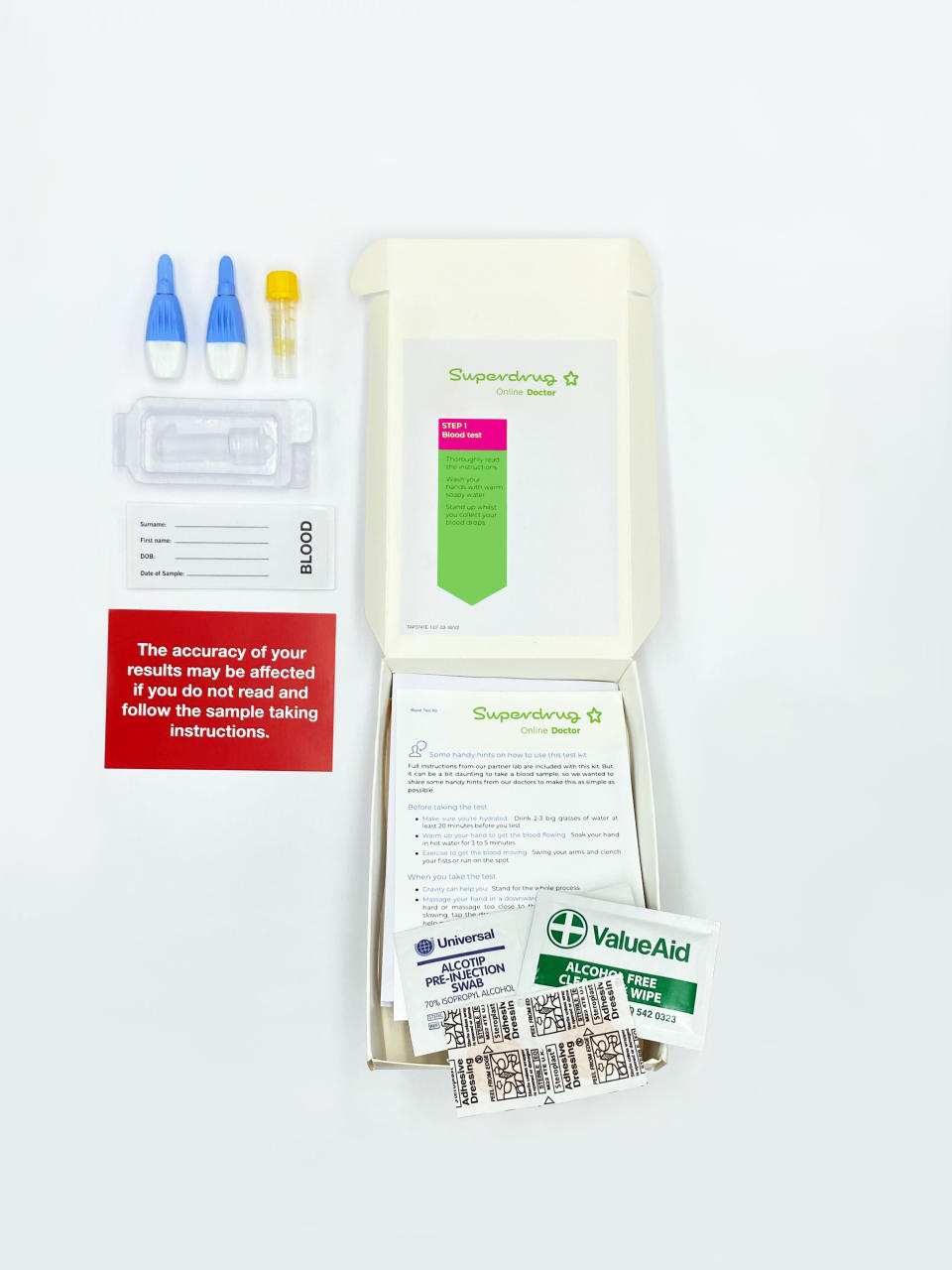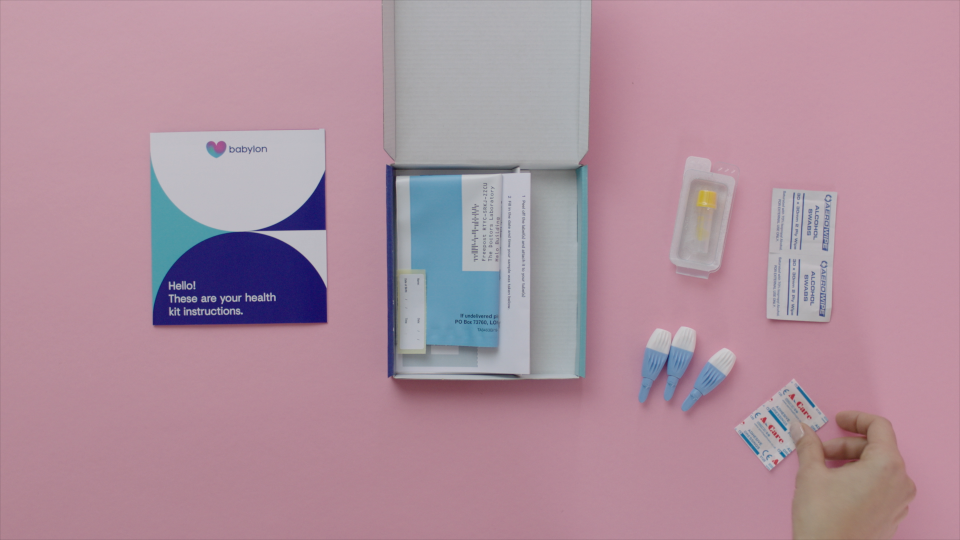Coronavirus: Scientists 'dismiss at-home tests that reveal if you have beaten the infection'

Experts have largely dismissed the release of at-home sampling kits that tell an individual if they have overcome the coronavirus.
For £69 ($83), health and beauty retailer Superdrug is selling a test that allows customers to take a blood sample that gets sent off to a laboratory for analysis.
Health app Babylon, once called “revolutionary” by Matt Hancock, has produced a similar piece of kit for the same price.
One expert described the tests as “somewhat promising”, but stressed it is unclear whether the presence of antibodies means a person will not catch the virus again or spread it to a vulnerable individual.
It also takes time for these antibodies to circulate in the bloodstream, raising the risk of a false negative.
Despite Superdrug and Babylon boasting 100% and 99.5% specificity respectively, one expert stressed “we cannot yet be confident” of the kits’ accuracy.
With Britons forced to adhere to social distancing measures even if they test positive for the antibodies, one scientist called the kits “good for satisfying curiosity, but no more”.
Early research suggests the coronavirus is mild in four out of five cases, however, it can trigger a respiratory disease called COVID-19.

‘We cannot be confident in their sensitivity and specificity’
Antibodies are proteins released by the immune system in response to an infection.
Once an infection has passed, memory antibodies circulate in the bloodstream at low levels.
If the virus is encountered again, the immune system ramps up production of these proteins to prevent the infection taking hold for a second time.
Superdrug’s website claims: “The test is 97.5% sensitive, and has 100% specificity, which means it will not give you a positive result if you do not have coronavirus antibodies.”
A theoretical 100% specificity test would mean the risk of a false positive, showing antibodies when the coronavirus has not been overcome, is 0%.
A 97.5% sensitivity rating means the likelihood of a false negative, when antibodies are present but not detected, is 2.5%.
Referencing the specificity line, Professor Stephen Evans from the London School of Hygiene & Tropical Medicine (LSHTM) said: “This seems rather a strong claim since to be absolutely sure, an infinite number of people will have to have been tested”.
Dr Joshua Moon from the University of Sussex agreed, adding: “If the test returned positive, I wouldn’t rely on antibodies being protective; if the test returned negative, I wouldn’t rely on that negative being a true negative”.
Before being sold online, both tests would have required a CE mark. This indicates conformity with health, safety and environmental protection standards for products sold within the European Economic Area.
Professor Evans pointed out, however, the accuracy the retailers are claiming will only stand if the blood is collected correctly. For example, enough is drawn to fill the sampling tube.
“The reality is likely to be that some will not follow the instructions and the reliability in such circumstances are unknown,” he said.
Superdrug stresses “you need to take it [the test] at least 14 days after the start of your coronavirus symptoms”, while Babylon states “antibodies tend to be found in your blood 21 days after your symptoms started”.
Failing to collect the blood in the correct timeframe may also skew the accuracy of the results.
“If you had symptoms in the last week or two, there is a lower chance that you have enough antibody to be detected”, said Dr Alexander Edwards from the University of Reading.
“If you were infected more than 20 days ago, it is increasingly likely the test will be positive”.
Several experts pointed out the kits are home sampling not home tests, with the blood being sent off to a laboratory.
This is different from a pregnancy test, which tells a woman if she is expecting there and then.
Professor Martin Hibberd from the LSHTM said: “These [antibody] tests have not been evaluated in the format that they are being used (finger prick at home and posting to a laboratory for reading) so we cannot yet be confident in their sensitivity and specificity”.

Coronavirus antibody tests ‘satisfy curiosity’ only
While people who overcome the coronavirus are expected to have some form of immunity against the infection, it is unclear how long this may last.
These concerns have prompted experts to dismiss the idea of an “immunity passport”.
Dr Moon described the testing kits as a “somewhat promising development”, but stressed “we don’t know at this point whether or not the presence of antibodies for [the coronavirus] is fully protective against future infections”.
“We have limited evidence of recovered cases being re-infected but an absence of evidence is not necessarily evidence of absence,” he said.
Dr Gino Martini from the Royal Pharmaceutical Society added the tests will “only provide a partial picture” until scientists better understand the role antibodies playing in warding off a second infection.
“The real issue is no-one knows the level of immunity that is conferred by having antibodies to coronavirus, how long it might last and if you can become re-infected”, he said.
Even if the results are reliable, questions about the protectiveness of coronavirus-specific antibodies reduce the kit’s worth.
“Until we know how strong and long lasting immunity is after infection, it is hard to know what to do about the results of these tests”, said Professor Adam Finn from the University of Bristol.
“So the bottom line is: don’t spend money and time on any test unless you have a very clear idea of what the result does or does not mean for you and what you are going to do or not do if you get a positive or negative result.
“If the answer is the result is not going to change what you do because you can’t be sure what it means, then there’s no point in doing the test”.
Superdrug even states on its website: “Whether antibodies mean immunity is still unclear.
“If you have antibodies, then it is thought that you might have some level of immunity to coronavirus.
“But without further research or conclusive data, we should assume it does not.”
Amid concerns about the degree of immunity, anyone who gets a positive antibody result must continue social distancing.
Dr Simon Clarke from the University of Reading added: “These tests are good for satisfying people’s curiosity, but no more.”
Professor Lawrence Young from the University of Warwick agreed, adding the retailers “highlight a positive antibody test result does not confer immunity and shouldn’t impact current precautions such as social distancing.
“So why take the test in the first place? What value does it provide?”
When asked via email if he would buy, take or rely on a test, Professor Young wrote: “No!”.
Several experts have called for the kits’ results to be linked to the public health system that helps inform how lockdown policies may be adjusted, rather than influencing any individual’s actions.
Despite his concerns, Dr Edwards called the release of the kits “great news overall”.
“I hope this situation will stimulate much more use of home testing, not just for COVID-19 but for other health conditions,” he said.
Superdrug and Babylon have been approached for comment.
What is the coronavirus?
The coronavirus is one of seven strains of a virus class that are known to infect humans.
Others cause everything from the common cold to severe acute respiratory syndrome (Sars), which killed 774 people during its 2002/3 outbreak.
Since the coronavirus outbreak was identified, more than 4.9 million cases have been confirmed worldwide, according to Johns Hopkins University.
Of these cases, over 1.7 million are known to have “recovered”.
Globally, the death toll has exceeded 324,000.
The coronavirus mainly spreads face to face via infected droplets expelled in a cough or sneeze.
There is also evidence it is transmitted in faeces and can survive on surfaces.
Symptoms include fever, cough and slight breathlessness.
The coronavirus has no “set” treatment, with most patients naturally fighting off the infection.
Those requiring hospitalisation are given “supportive care”, like ventilation, while their immune system gets to work.
Officials urge people ward off infection by washing their hands regularly and maintaining social distancing.
Coronavirus: what happened today
Click here to sign up to the latest news, advice and information with our daily Catch-up newsletter
Read more about COVID-19
How to get a coronavirus test if you have symptoms
What you can and can’t do under lockdown rules
In pictures: How UK school classrooms could look in new normal
How public transport could look after lockdown
How our public spaces will change in the future
Help and advice
Read the full list of official FAQs here
10 tips from the NHS to help deal with anxiety
What to do if you think you have symptoms
How to get help if you've been furloughed



